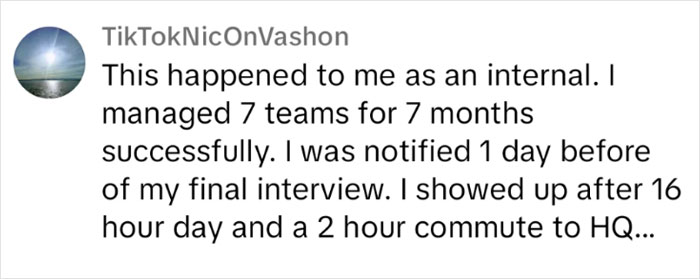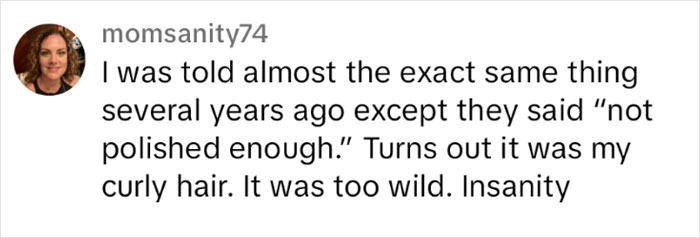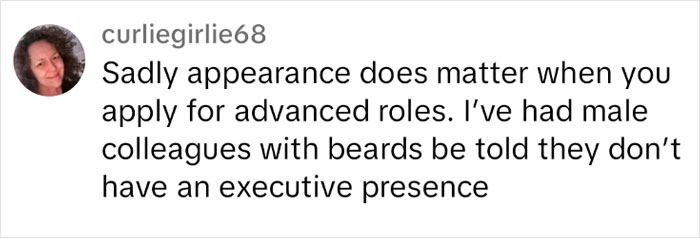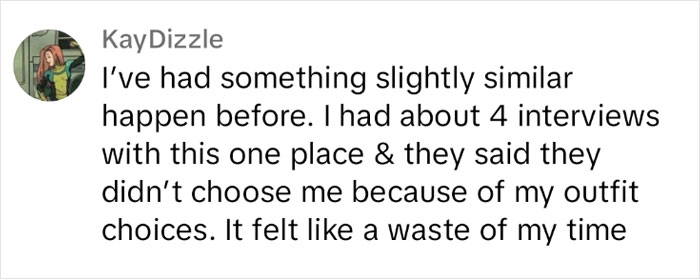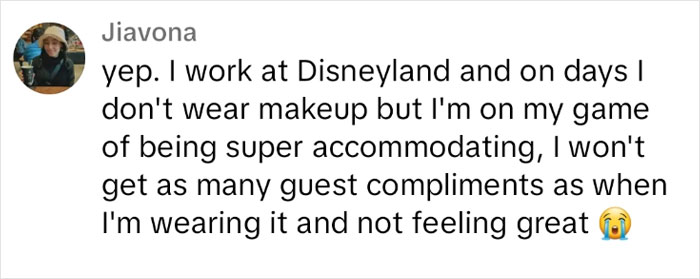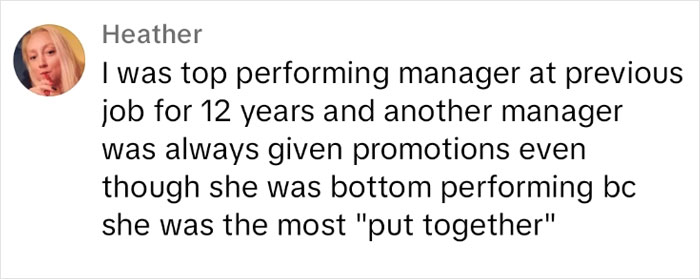Looking for a new job can be incredibly stressful. You’re competing with countless other capable candidates in interviews and aptitude tests. Unfortunately, some companies also take your physical appearance into account. And a job you might be perfectly qualified for can slip through your fingers because you don’t match the societal standards of ‘beauty.’ Or… because you don’t often wear makeup.
New Yorker Melissa Weaver went viral on TikTok and in the media after sharing how she got rejected for a vice president job because she didn’t wear makeup for her interview. Read on for the full story and what the internet thought of ‘pretty privilege’ and double standards for women.
Bored Panda reached out to Weaver, and she was kind enough to answer our questions. “Pretty privilege has always existed. My story just shed light on it and gave people a space to talk about their own experiences,” she told us. You’ll find our full interview with her below.
In this day and age, some recruiters still evaluate applicants’ appearance alongside their skills

Melissa Weaver went viral after sharing how she was denied a high-profile position because she didn’t wear makeup for the interview
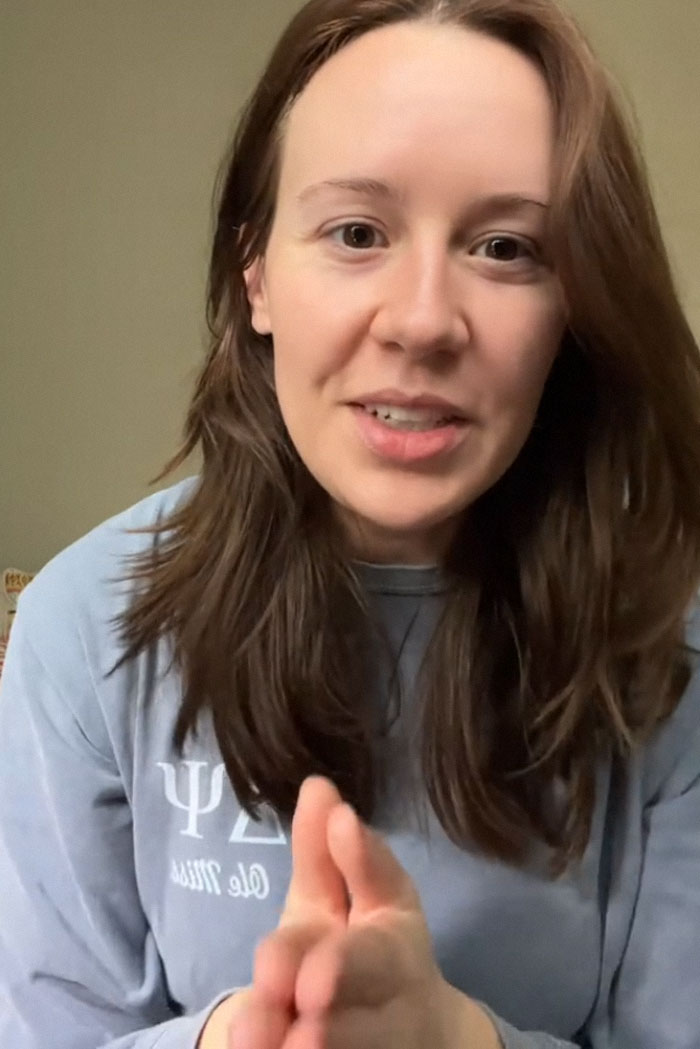
“Okay, TikTok, I need your opinion on something. So I interviewed for a job earlier this week. The interview went so well. Every question she had, I had a great answer for. I used to work in recruitment. I know how to interview.”
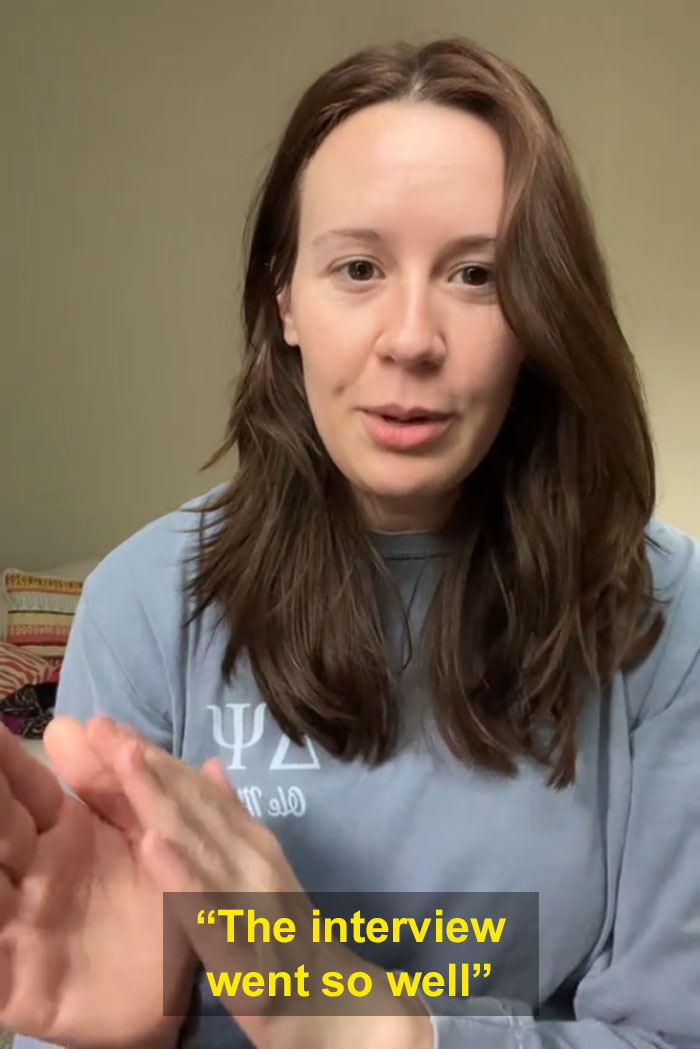
“My background and experience align perfectly with what the role entails. So I thought it went great. But then I get an email from the recruiter saying that I’m not going to be moving on to the next round. I was really bummed because I wanted the job. But I was also very confused.”
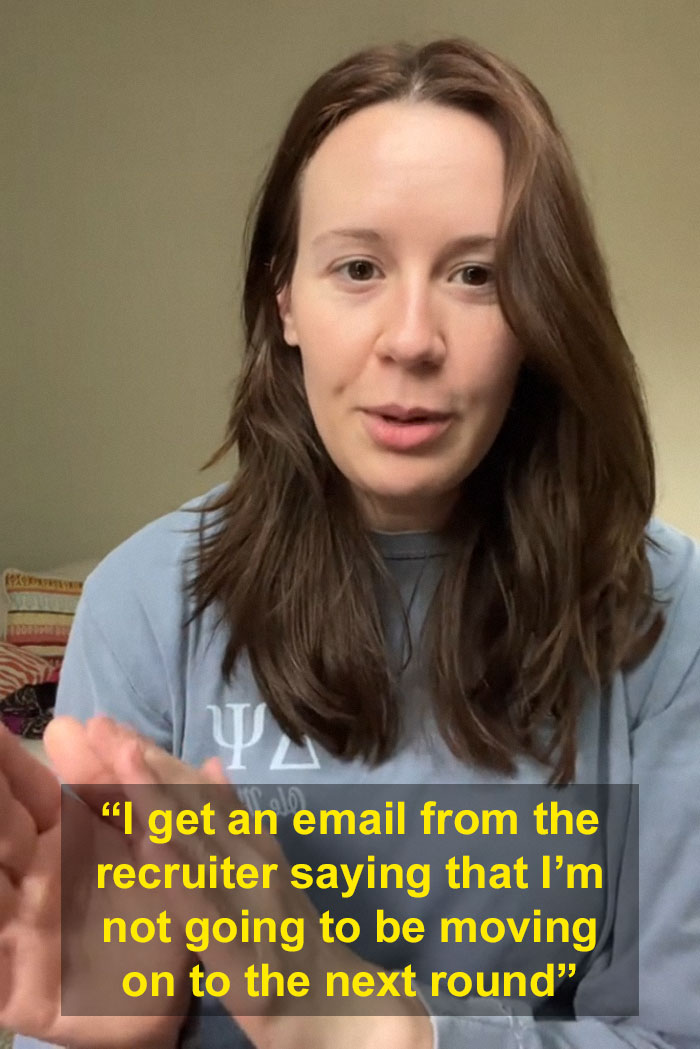
“So I did something I never do, and I emailed her back and asked for feedback. And she said that while my background was exactly what they were looking for, my experience lined up with what they need for the position, and my own personal goals and values align with the company’s, she was concerned that, for my interview, I hadn’t put in enough effort in my appearance, given the level of the role I was interviewing for.”
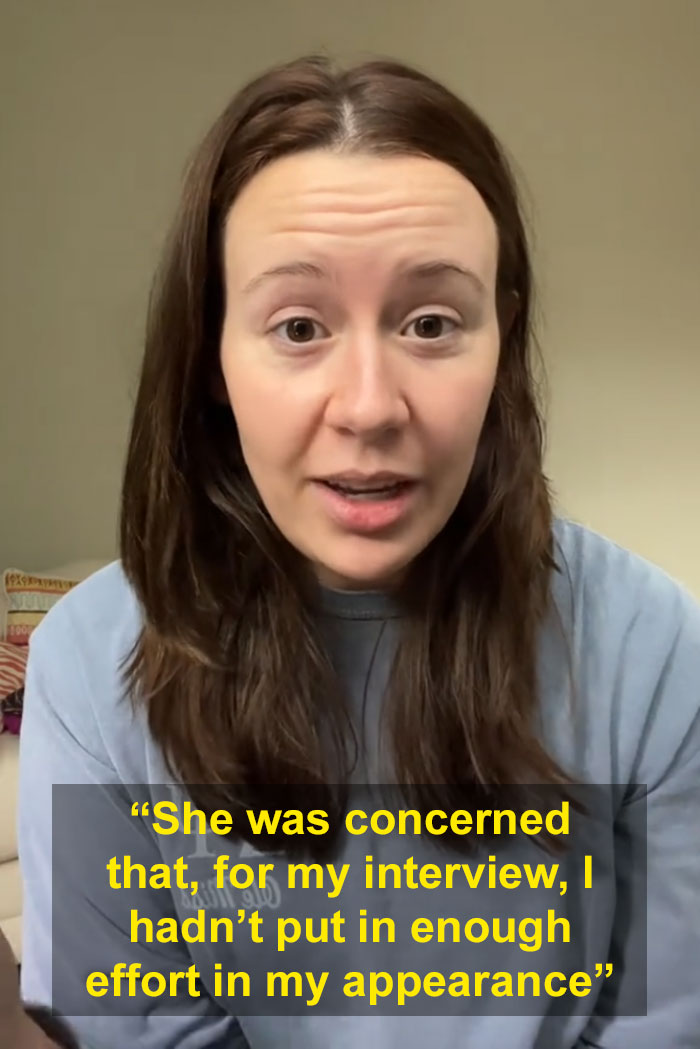
“I was interviewing for the vice president position. And now my appearance: I had done a blowout for my hair. I had on a nice top, a blazer, some earrings, but I only had on chapstick. I didn’t have on any makeup because I don’t really wear a lot of makeup. Not to be quirky. I just don’t.”
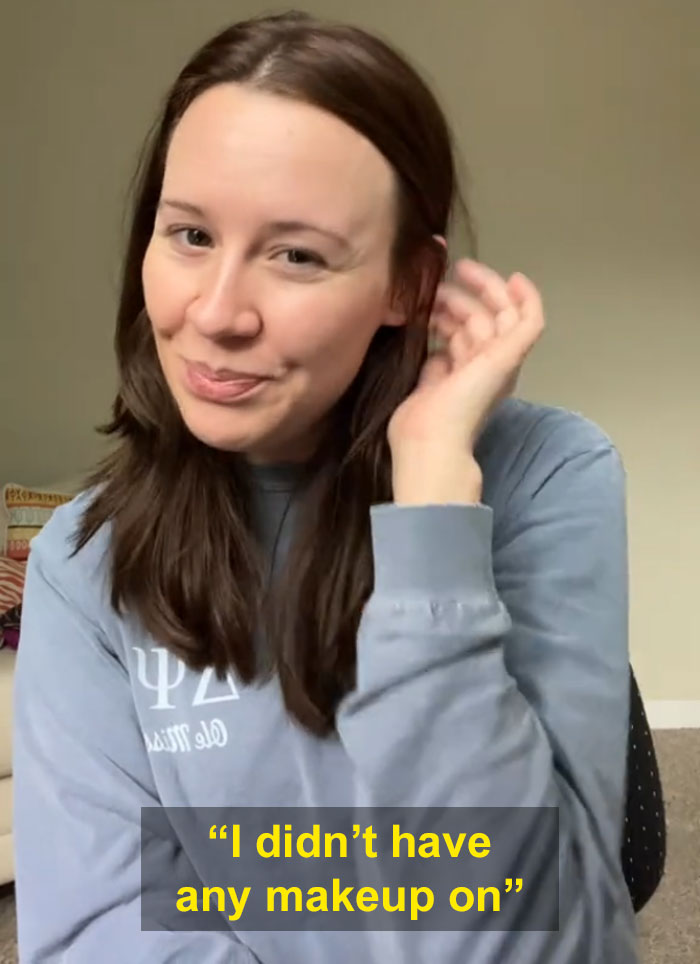
“So my question is, does not wearing makeup, for women, to job interviews or to jobs, make it seem like they aren’t putting as much effort or care into their job?”
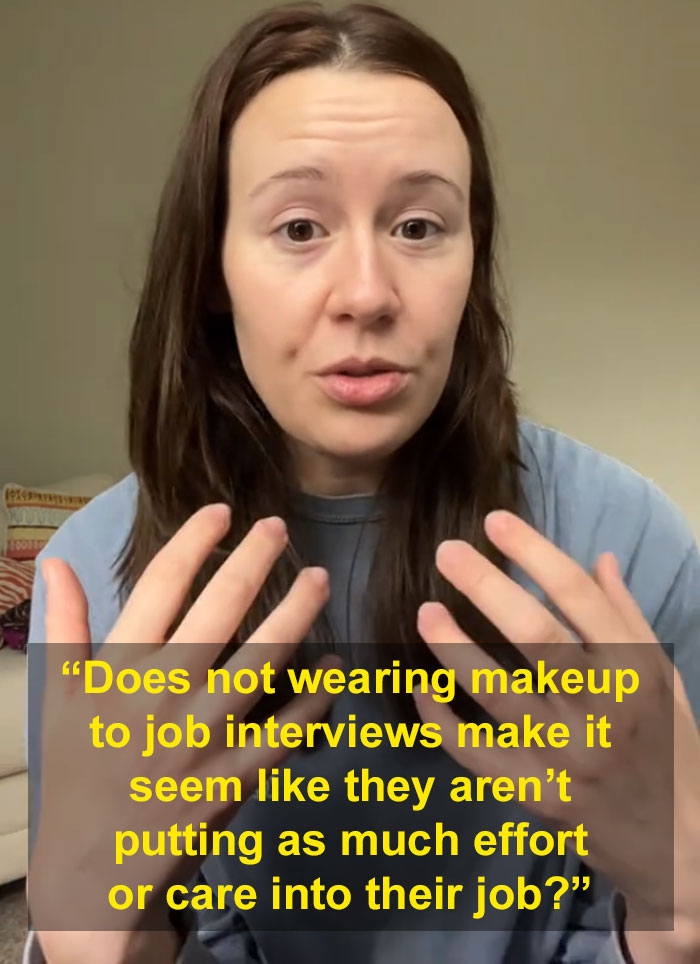
According to Weaver, when she asked for follow-up info about why she didn’t move on to the next stage in the job application process, she was told that she hadn’t put enough effort into her appearance.
She had done a blowout for her hair and was wearing a nice blazer and earrings. However, she hadn’t worn any makeup because she doesn’t really do that.
It would be frustrating for anyone to learn that their skills aren’t the priority and are passed over for such a superficial thing as makeup. Especially when you consider that it’s a very high-profile role you’re interviewing for—a vice president position in HR.
We wanted to get Weaver’s take as to why her video resonated with so many people all around the globe. From her perspective, a lot of people, especially women, have experienced being treated differently because of their appearance.
“It’s been an unspoken, unconscious bias. I had someone actually voice their opinion that makeup is expected for a woman to look professional,” she told Bored Panda via LinkedIn.
According to Weaver, companies don’t prioritize looks over skills. “One of the reasons I didn’t name the company in my TikTok video was because I didn’t want to shame an entire company based on the opinion of one of their employees,” she explained.
“I do think there are people who think appearance is important in the workplace because it’s what they’ve always been taught. Girls aren’t born knowing how to put on makeup. They learn from their moms and grandmothers, and being ‘old enough’ to wear makeup is culturally seen as a right of passage for girls. I think every Millenial was told by their parents that people with visible tattoos will never be able to get a ‘real’ job,” Weaver told us.
“People’s preconceived notions about appearance stem from what they grew up hearing and what society says is ‘acceptable’. I don’t think anyone would say skills aren’t important, but there are people who think for someone to be the ‘full package’ employee, they need to have skills and meet a certain standard of appearance.”
Meanwhile, Bored Panda asked Weaver for the advice she’d give job applicants who feel nervous about interviews. She was happy to share some pearls of wisdom. “Before you apply for a job, make sure you meet all the required qualifications and at least 75% of the preferred qualifications and you’re confident you could handle the role responsibilities,” she said.
“Before the interview, do some research on the company and have a couple of questions ready to ask the interviewer. Before the interview, do some research on the company and have a couple of questions ready to ask the interviewer. When the pre-interview nerves and doubts start to creep up, remind yourself: 1) you know you can do the job—you wouldn’t have applied for it if you didn’t think you could, 2) you’re prepared for the interview, and 3) this company thinks you have potential to do the job—they wouldn’t be interviewing you if they didn’t.”

Image credits: Edmond Dantès (not the actual photo)
You can watch the full video, which was picked up by media outlets everywhere, over here
@_melissaweaver Does wearing make up to work make a difference? #work #corporate #career #interview #job #jobsearch #makeup #jobinterview #opinion #advice #women ♬ original sound – Melissa
At the time of writing, Weaver’s viral TikTok video was viewed over 786k times. It also got 68.7k likes and received more than 5.3k comments. The story was also picked up by major and smaller news outlets around the globe.
Many internet users were appalled by the double standards that women face even in this day and age. Unfortunately, the TikToker’s experience wasn’t a one-off experience. Other TikTok users shared similar stories of their own.
Weaver later posted a longer video where she went into detail about some of the questions that her followers had about the entire situation. She added that she wouldn’t publicly name and shame the company that rejected her for several reasons.
For one, it’s a good way to be blacklisted, and it wouldn’t do you any good while you’re still looking for a job. Finding a new job is Weaver’s current priority. It’s also unfair to criticize an entire company based on one recruiter’s behavior. It’s a diplomatic way of starting a discussion about appearances and ‘pretty privilege’ culture while remaining professional.
Whether we like it or not, things like judging others over their appearance might never go away. However, we can mitigate at least a part of these (un)conscious biases by being more aware of them.
The so-called ‘halo effect’ is a cognitive bias where our impression of a person affects how we feel about their character. To put it simply, someone who seems nice might make us think that they’re also smart.
Or, more commonly, folks tend to think that extremely good-looking people are also virtuous, talented, capable, and charming, even if they’re nothing of the sort. Verywell Mind points out that the halo effect is also known as the ‘what is beautiful is also good’ principle. In short, people tend to give attractive individuals the benefit of the doubt.
Weaver explained to Newsweek that her job interview was “engaging and informative.” The overall impression she got from it was very positive.
“We delved into the role, responsibilities, and the company’s growth plans. I was confident I met all their expectations,” she said.
“I left the interview feeling confident, so when I got an email from the recruiter a few days later saying I wasn’t moving forward in the hiring process, I was dumbfounded.”
Weaver explained that the interviewer thought her experience was exactly what the company was looking for. Moreover, the applicant’s values aligned with those of the company.
There was just one ‘problem’: “She was concerned that I hadn’t put enough effort into my appearance given I was interviewing for a VP-level role.”
Weaver told Newsweek that she rarely wears makeup because she has sensitive skin and eyes. “I believe this was the only aspect of my appearance that could have been perceived as lacking effort,” she said.
“My previous companies didn’t care about how people dressed in the office, so long as people weren’t showing up in pajamas or workout clothes. No one ever commented on whether or not a woman wore makeup.”

Image credits: Sora Shimazaki (not the actual photo)
Many TikTok users supported Weaver and thought that she was being discriminated against


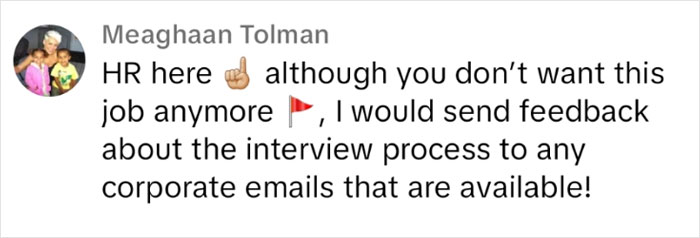

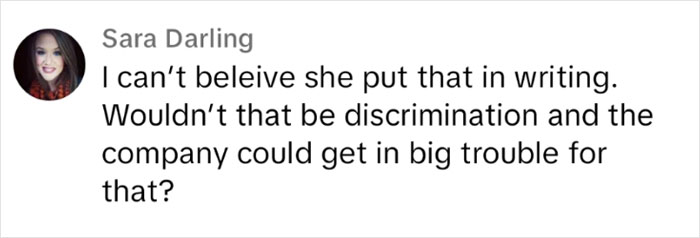




However, some internet users actually agreed with the recruiter

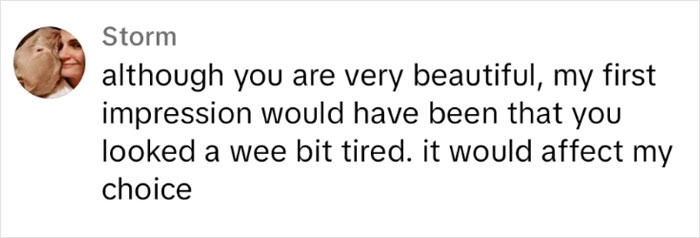
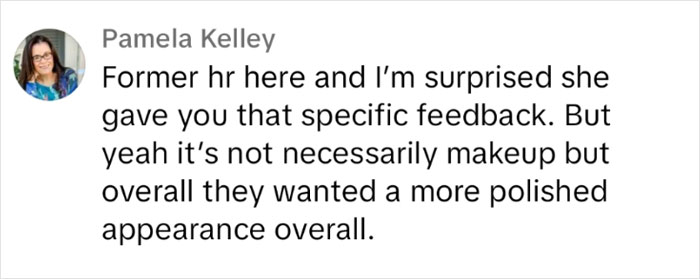




Others shared their own job interview experiences where appearances mattered more than skills
